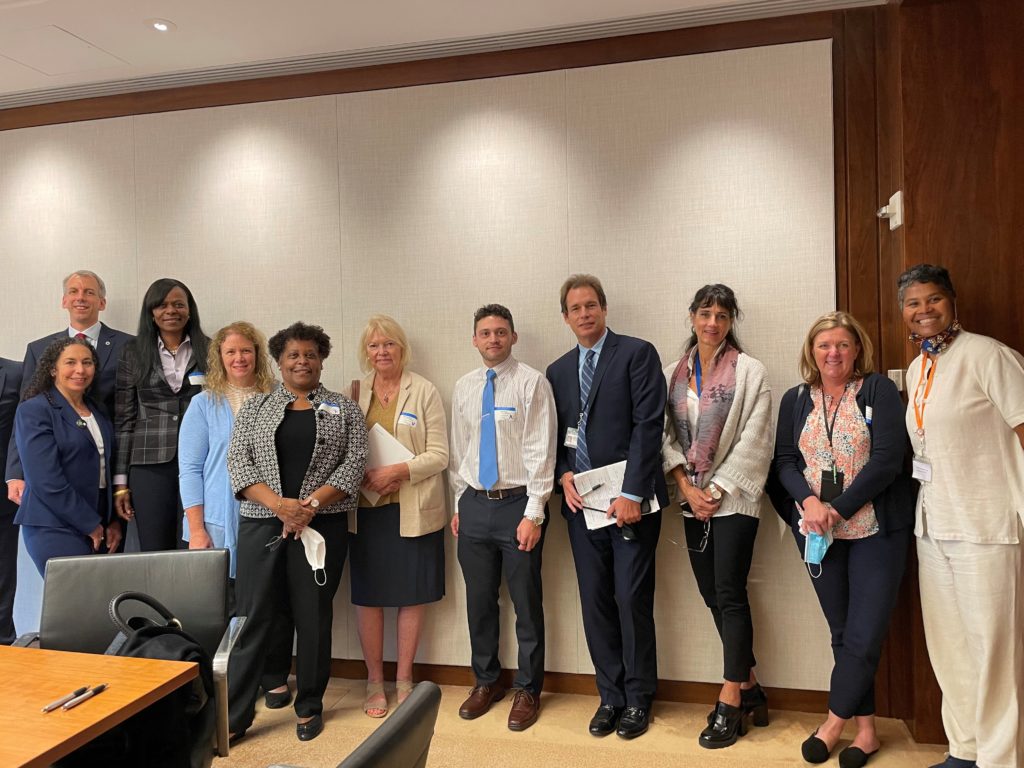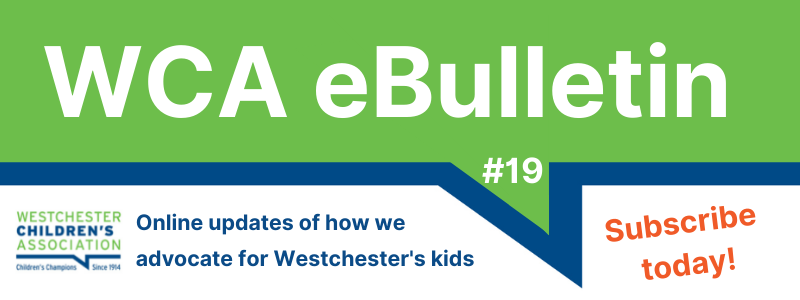
WCA and Morgan Stanley host a roundtable of community partners and service providers around children’s mental health in September 2021.
On October 5, we hosted a Children’s Mental Health Roundtable focused on the needs of students returning to school this fall. We were joined in person by 15 agency partners, thanks to our host Morgan Stanley in Purchase, and another 10 virtually through Zoom. Our attendees included County mental health professionals, school personnel, government leaders, and service and support providers working directly with children and families.
A recurring theme that emerged from the discussion was the lack of consensus on key indicators for measuring mental health outcomes between public and private providers and in the industry as a whole. Anecdotal experiences and limited available data show that mental health support was a major priority before the pandemic and continues to be going forward but there is a high degree of unmet need among children and families. Developing consistent indicators and investing in better monitoring can help our leaders budget and respond to increased demand while facilitating collaboration to better support children.
While there is an urgent need for children’s mental health support, funding and tight, siloed budgets create challenges for mental health providers. From attracting and retaining a strong workforce, to expanding program capacity, leveraging prevention, and building children’s resilience to weather, mental health providers and administrators are struggling to manage many challenges. Low public and private insurance payments for mental health services limit clients’ abilities to afford mental health care and, unfortunately, limit the ability of mental health service providers ability to meet the full needs of their clients. Furthermore, schools have limited budgets for mental health and social work support staff and, although there is increased short-term funding due to the pandemic, teachers have limited capacities to incorporate social-emotional learning into their curriculum.
Attendees agreed, a good thing is the changing stigma of mental health with young people. Social and emotional wellness is more readily out in the open and discussed amongst this next generation. This has also led to an increased demand for services. The Commissioner from the Department of Community Mental Health, Michael Orth, shared it is important for all children to have safety, connections and coping mechanisms. It was suggested, we all need to work on a vision of what it means to be a “healthy” young person.
There is also a significant need for support in navigating mental health services across Westchester that presents many barriers to care. A proposed solution was improved integration of primary and behavioral care with more fluid connections between mental health providers and pediatricians who can provide guidance directly to patients.
As nearly all Roundtable participants faced limitations that precluded them from meeting the full need of the communities they serve, the conversation gravitated toward ways to coordinate rather than duplicate their services to ensure they are reaching more children and families. Getting at the root causes and unearthing disparities will be important as we work towards solutions. One participant mentioned the need to change our language from “the social determinants of health” to the “social influencers of equity.” We are ready to take the next steps necessary to better serve the mental health needs of Westchester’s kids through increased funding, better data collection, and program development after the pandemic and beyond.
Read other articles in our eBulletin #19
- Youth Justice Expert Panel on Emerging Adults
- Vote for Kids Candidate Survey
- WCA received a golden seal of transparency from Guidestar!
#WCAeBulletin | @WCA4kids


